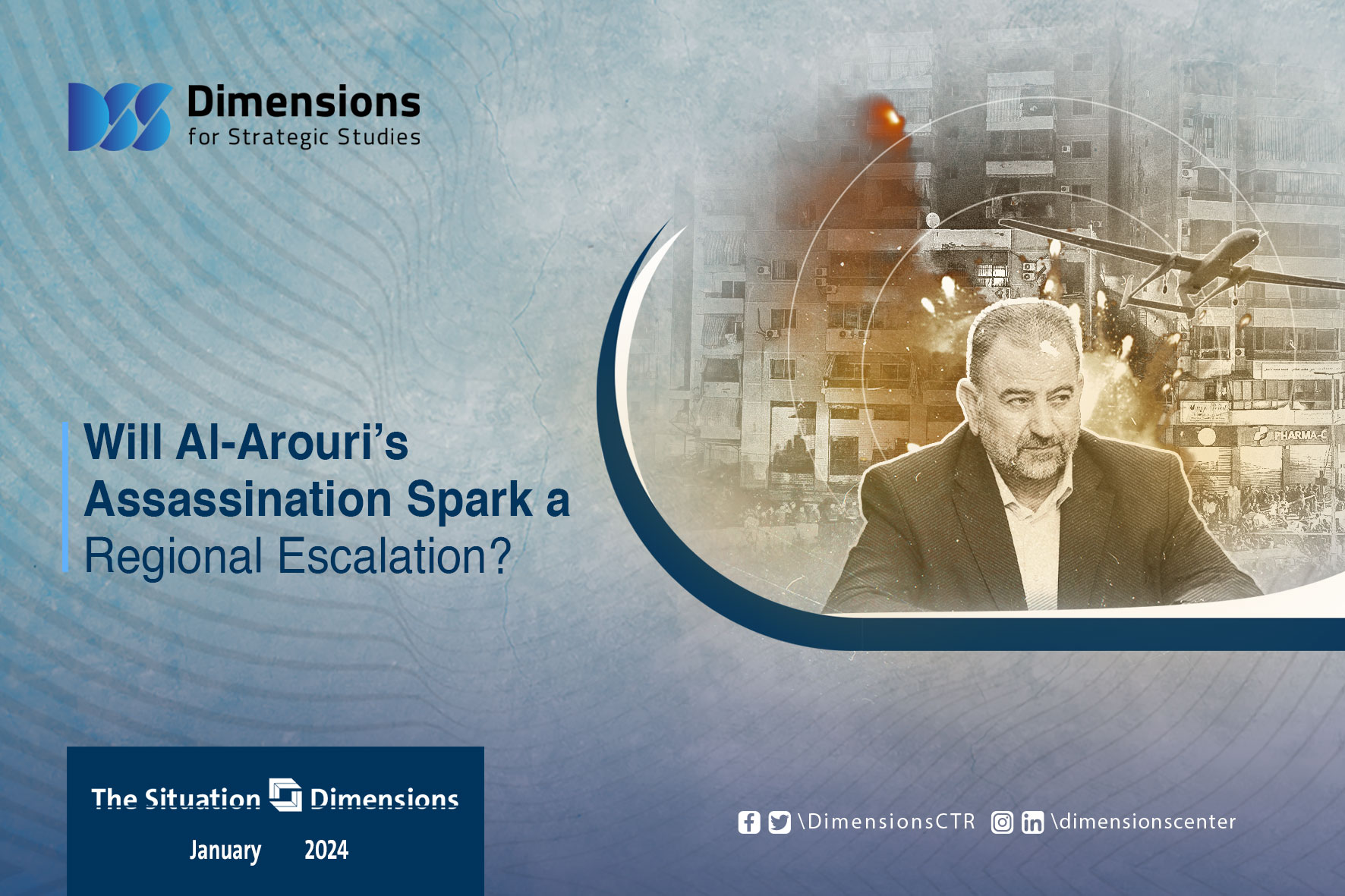
Will Al-Arouri’s Assassination Spark a Regional Escalation?
2024-01-032053 view
On January 2, Saleh Al-Arouri, deputy head of the political bureau of the Hamas movement, was assassinated by a drone in the southern suburbs of Beirut. While Israel has neither confirmed nor denied its responsibility, his killing comes after Prime Minister Benjamin Netanyahu announced a new strategy aimed at assassinating the heads and leaders of Hamas, just two weeks after the Hamas attack of October 7 and amid the ongoing Israeli assault on Gaza.
Israel has a long history of assassinating top figures from Hamas and Islamic Jihad, with prominent examples including Ahmed Yassin and Fathi al-Shaqaqi. Yet despite Netanyahu’s announcement, early in the latest Gaza conflict, the strategy does not appear to have been particularly successful in the Gaza Strip. A case in point is Israel’s failure, thus far, to eliminate Yahya Sinwar.
Israel has announced the killings of certain Hamas field commanders in Gaza, such as its October 25 strike against Tayseer Mubasher, who it said was the commander of a battalion in the northern Khan Yunis area. Yet the assassination of a top figure such as Arouri is on another level, especially since it comes little more than a week after Israel assassinated Sayyed Razi Mousavi, a senior adviser in Iran’s Revolutionary Guards, in Damascus.
These moves indicate that Israel intends to expand its operations in the region while stopping short of sparking a comprehensive regional conflict. It seeks to do so through assassinations and special operations. This intention is echoed in Netanyahu’s early threats to expand Israeli assassinations to target Hamas political leaders in Lebanon, Qatar, Turkey, Egypt and other countries.
It is striking that Israel managed to assassinate Al-Arouri in Beirut’s Dahiya al-Junubiyya, a Shiite stronghold, and to kill Al-Moussawi in the Shiite-dominated Sayyida Zeinab area of Damascus. This indicates that Israeli intelligence has deeply penetrated both areas, despite evidently failing to do so in Gaza.
The killing of Arouri could allow Netanyahu to buy more time for Israel’s assault on Gaza, especially in light of reports that Washington is putting more pressure on it to draw its large-scale operations there to a close. Threatening to expand the conflict through such operations represents an opportunity for the Israeli premier to achieve certain goals without dragging in his American allies.
Al-Arouri’s assassination could be the start of a broader campaign of assassinations targeting Hamas political leaders, which would have more symbolic than military or operational importance. However, it is important to note that Al-Arouri was an influential figure who, according to some reports, played a key role in the planning of the Operation Al-Aqsa Flood on October 7.
All this indicates that Israel may once again expand its operations targeting Hamas figures, even within Turkey or Qatar, despite Turkish President Recep Tayyip Erdogan’s threats that Israel would pay a heavy price in response. However, Israel - and Netanyahu specifically – estimate that the blowback from such operations could be quite limited, including from Iran, making more such strikes tempting.
This is increasingly true given the failure of such operations within Gaza (the main area of operations), and the successful killing of Mousavi without sparking any significant Iranian reaction.
Israel will remain focused on targeting military leaders or those who are actually influential in planning operations, such as Al-Arouri. However, it will spare no effort to carry out assassinations of political leaders when the opportunity arises, as it struggles to achieve any military victory inside the Gaza Strip.





